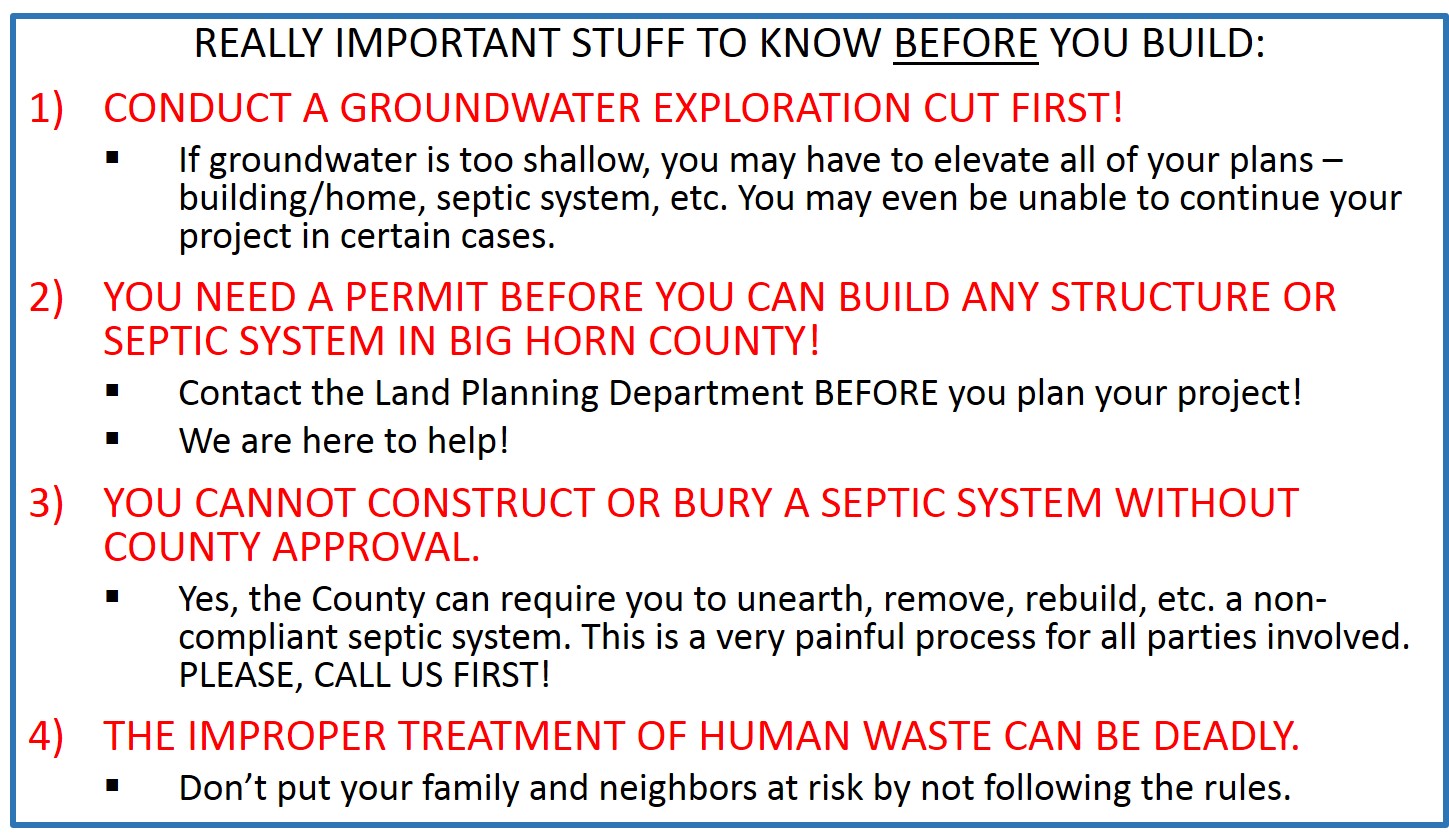
Delegated Official
The Wyoming Department of Environmental Quality delegated the authority and responsibility to enforce and administer the provisions of W.S. 35-11-301(a)(iii) and (v) for small wastewater facilities to Big Horn County. The delegation agreement includes the authority to do the following:
- Develop necessary rules, regulations, standards and permit systems
- Review and approve construction plans
- Conduct inspections
- Issue permits
- Enforce against violations
- Develop rules governing the review and appeal of any decision made by Big Horn County
Septic Permit
A septic permit is required before construction of a small wastewater treatment facility can commence.
Septic Permit Application Package
A Septic Permit Application Package is required for any new construction/install, replacement or repair of a small wastewater treatment facility within unincorporated areas of Big Horn County. The application should ONLY be used for conventional systems (septic tank and leachfield) with a wastewater flow of less than 2,000 gallons per day. The system design must comply with the minimum requirements of the Wyoming Water Quality Rules and Regulations, Chapter 25. Only those pages which are applicable to your system must be submitted in addition to the application.
Basic Septic Installation Process Overview
*Not all installations will follow this exact process. Exceptions are possible.*
- Obtain a Septic Permit Application from Land Planning
- Conduct groundwater exploration cut and percolation tests
- Submit Septic Permit Application to Land Planning
- Design system
- Submit design to Land Planning
- Obtain county-issued Permit to Construct
- Install system according to approved design specifications
- Land Planning inspects system before backfilling occurs
- Obtain county-issued permission to backfill
PLEASE CALL OR STOP BY IF YOU NEED HELP! We will try to make the process as simple as possible.
COMMON CAUSES FOR SEPTIC SYSTEM FAILURE
- Water leakage
- Introduction of non-domestic waste products into the system (e.g., dental floss, feminine hygiene products, diapers, condoms, cotton swabs, coffee grounds, cat litter, paper towels, household chemicals, oil, gasoline, pesticides, paint, antifreeze)
- Buildup of oil and grease
- Buildup of solids and sludge
- Heavy internal water usage
- Heavy external watering (e.g., irrigation, excessive rain or runoff water, pooled water)
- Poor system design
- Dense soil
- Crushed or damaged system components (e.g., driven over, parked on, tree root growth, livestock grazing)
